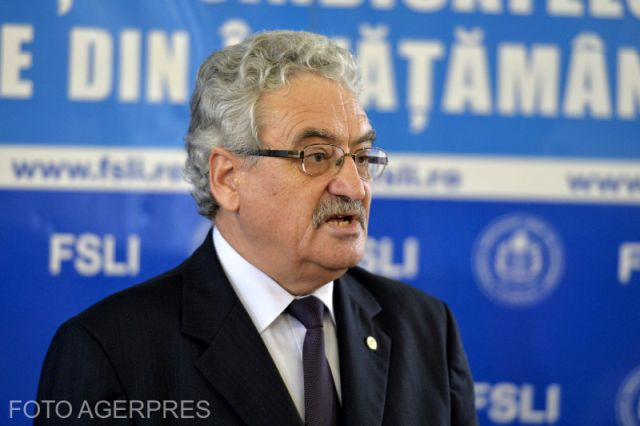Protests of the teaching staff
Trade unions in the Romanian education system resumed protests, on the first week of the second semester of the school year, against a number of decisions taken by the authorities, including the one regarding the salary rise by only 4.5%. The teaching staff want to receive the base salary stipulated in a law from 2017, which provided for a 16% increase in salaries starting two years ago. Trade unionists also want 6% of the GDP to be earmarked for Education, as well as bonuses for labor conditions, the payment of extra hours and more jobs for teachers.

Daniela Budu, 19.01.2022, 12:16
Trade unions in the Romanian education system resumed protests, on the first week of the second semester of the school year, against a number of decisions taken by the authorities, including the one regarding the salary rise by only 4.5%. The teaching staff want to receive the base salary stipulated in a law from 2017, which provided for a 16% increase in salaries starting two years ago. Trade unionists also want 6% of the GDP to be earmarked for Education, as well as bonuses for labor conditions, the payment of extra hours and more jobs for teachers.
The unions had announced late last year a general strike on January 10, but the idea was given up due to the teachers’ holiday. The leader of the Federation of Free Trade Unions in Education, Simion Hancescu, says that the growing discontent on the part of the teaching staff is due to the authorities’ lack of reaction. Simion Hancescu: “They are unhappy with a number of things. On December 6 we submitted a list to the Government, with 163,000 signatures in support of a petition for the enforcement of Law 153 starting January 1, 2022. We got no answer to that. We protested three days in front of the Government offices. Again, there was no answer. We picketed the Government for a day, last week, and then we decided for a form of protest that involves more people. They want a general strike.
According to Marius Nistor, the head of the Spiru Haret Trade Union Federation, it is not only the teaching staff that is unhappy with the situation. Marius Nistor: “I would like to emphasize the fact that we do not talk only about the teaching staff, but about all people who work in a school, including the auxiliary and non-teaching staff, irrespective of their position in the education unit.
On the side of the authorities, Education Minister Sorin Cimpeanu says that salaries have to be a motivating factor and that it is natural for people to be upset with the fact that the law from 2017 does not apply. However, the minister calls on teachers to understand the situation, saying he is confident most of them will not abandon their students, who have already been affected by the online classes due to the pandemic. According to the official, following the pay rise operated so far, a beginner teacher has a net salary of little over 500 euros (2,597 lei) and a teacher who worked for more than 40 years has almost 900 euros (4,398 lei). There are also bonuses that can add to these salaries, Cimpeanu also said. In their turn, some of the students protested last week against a decrease in the value of certain scholarships, but the Education Ministry has not reconsidered its decision. (EE)






























